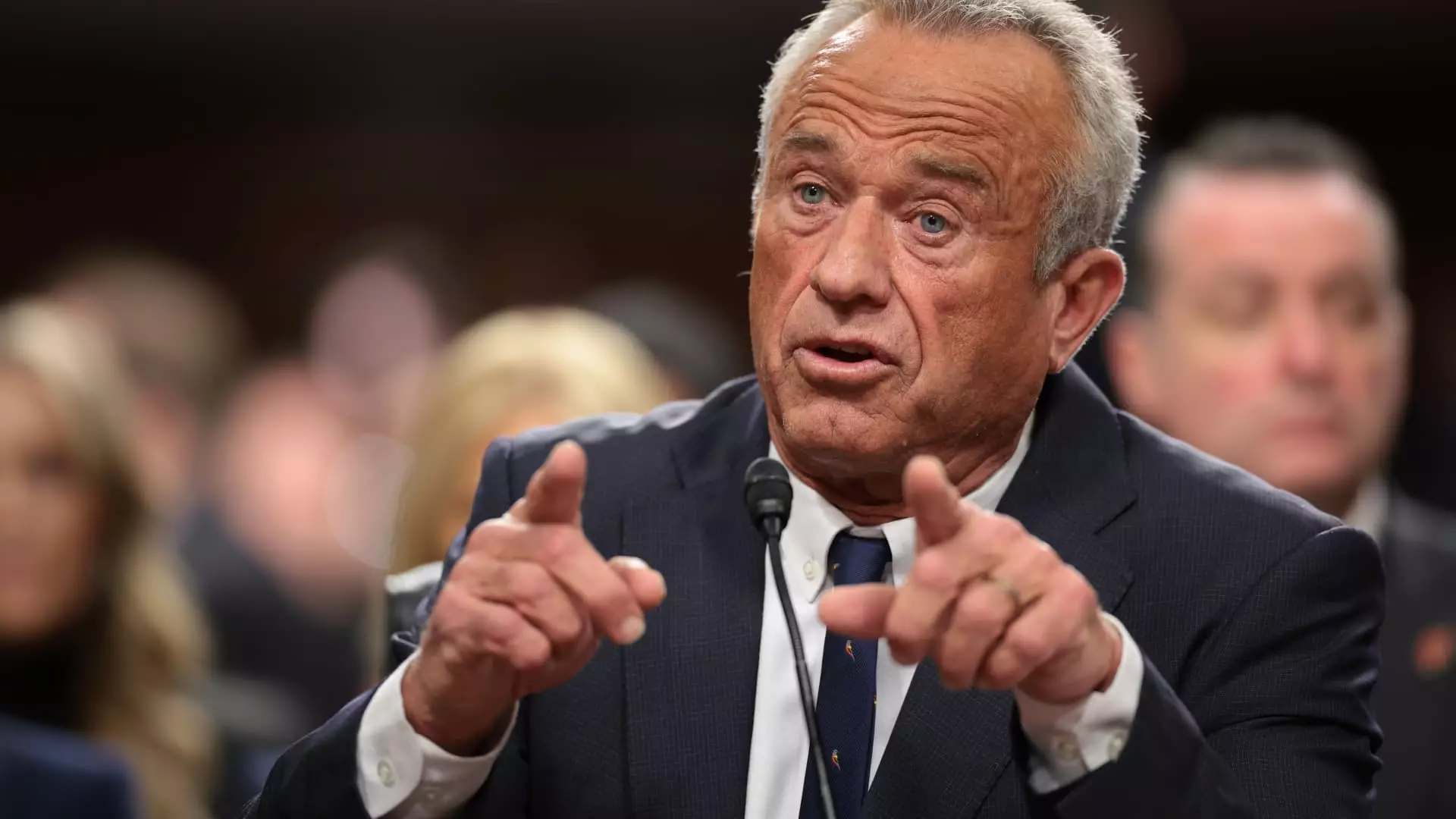In an age where consumer awareness is paramount, Robert F. Kennedy Jr., the current Secretary of Health and Human Services, is making headlines with his commitment to transforming America’s food landscape. During a recent meeting with elite food industry executives, Kennedy emphasized a bold ambition: to eliminate subpar ingredients from our diets. This is not just a passing initiative; it symbolizes a critical shift in how we view health and nutrition in this country.
The Trump administration has embraced a dietary revolution that seeks to confront the pernicious influence of artificial additives, particularly artificial dyes. The urgency expressed by Kennedy reflects a growing recognition of the detrimental effects these substances can have on public health. The reported timeline suggests that substantial changes could occur before his term ends, showcasing a formidable sense of duty toward consumers and their well-being.
Collaboration or Command?
Kennedy’s approach can be interpreted as a dual strategy of cooperation and ultimatum. He has made it clear that while he is willing to work alongside food industry giants, he has no qualms about taking decisive action should they fail to be proactive. This balance of dialogue and directive signals a new era of regulatory oversight that is likely to unsettle some industry players.
The meeting yielded positive feedback from participating executives, who lauded the collaborative atmosphere. However, there lies an undercurrent of tension, for stakeholders must balance their financial objectives with a looming government mandate dedicated to public health. One can’t help but speculate on how this push might affect profit margins; consumers are likely to react with enthusiasm for healthier options, but manufacturers may hesitate at the cost of reforming their supply chains.
The Identify Crisis of Modern Diets
At the crux of Kennedy’s initiatives lies a profound critique of America’s current dietary landscape. He presents a compelling argument that the convergence of government agencies and corporate interests has created a toxic environment where health risks abound. His “Make America Healthy Again” platform underscores a paradigm shift where nutritious food replaces pharmaceuticals in the fight against chronic disease.
Kennedy believes that real solutions must prioritize nutrition over medication, urging a fundamental reevaluation of how we perceive both food and health. This argument resonates deeply with a public increasingly skeptical of conventional medicine, particularly as childhood obesity and related health issues continue to escalate.
The Reckoning with Vaccines
Kennedy’s tenure is not without controversy, especially given his well-documented skepticism of vaccines. While some applaud his push for transparency in food quality, others express concern about his potential impact on immunization policies. Not merely content to regulate food, he has indicated plans to reassess the childhood vaccination schedule, which could lead to significant changes in public health strategies.
Opponents argue that this skepticism may further drive down vaccination rates at a time when herd immunity is critical. The juxtaposition of his food policy and potential vaccine reforms epitomizes the complexities facing policymakers who aim to balance public health with individual choice.
What’s at Stake for the American Consumer?
In this high-stakes environment, the American consumer becomes the focal point of Kennedy’s reforms. As the food industry braces for transformation, one can’t overlook that these initiatives promise to empower consumers with better choices. The collective demand for healthier food options has never been louder, pushing corporate giants to rethink their commitments to quality.
However, this effort requires vigilance from both government and consumers alike. While CEOs praise Kennedy’s intentions, true change necessitates accountability beyond boardroom agreements; it demands radical transparency and consumer engagement that challenges the status quo in food production.
Kennedy’s proposals may herald a new chapter in American food culture, one that promises to disrupt habitual practices for the better. As he navigates this intricate labyrinth of corporate interests, it will be fascinating to watch how this dialogue evolves, especially as it intertwines with other dimensions of public health policy.

